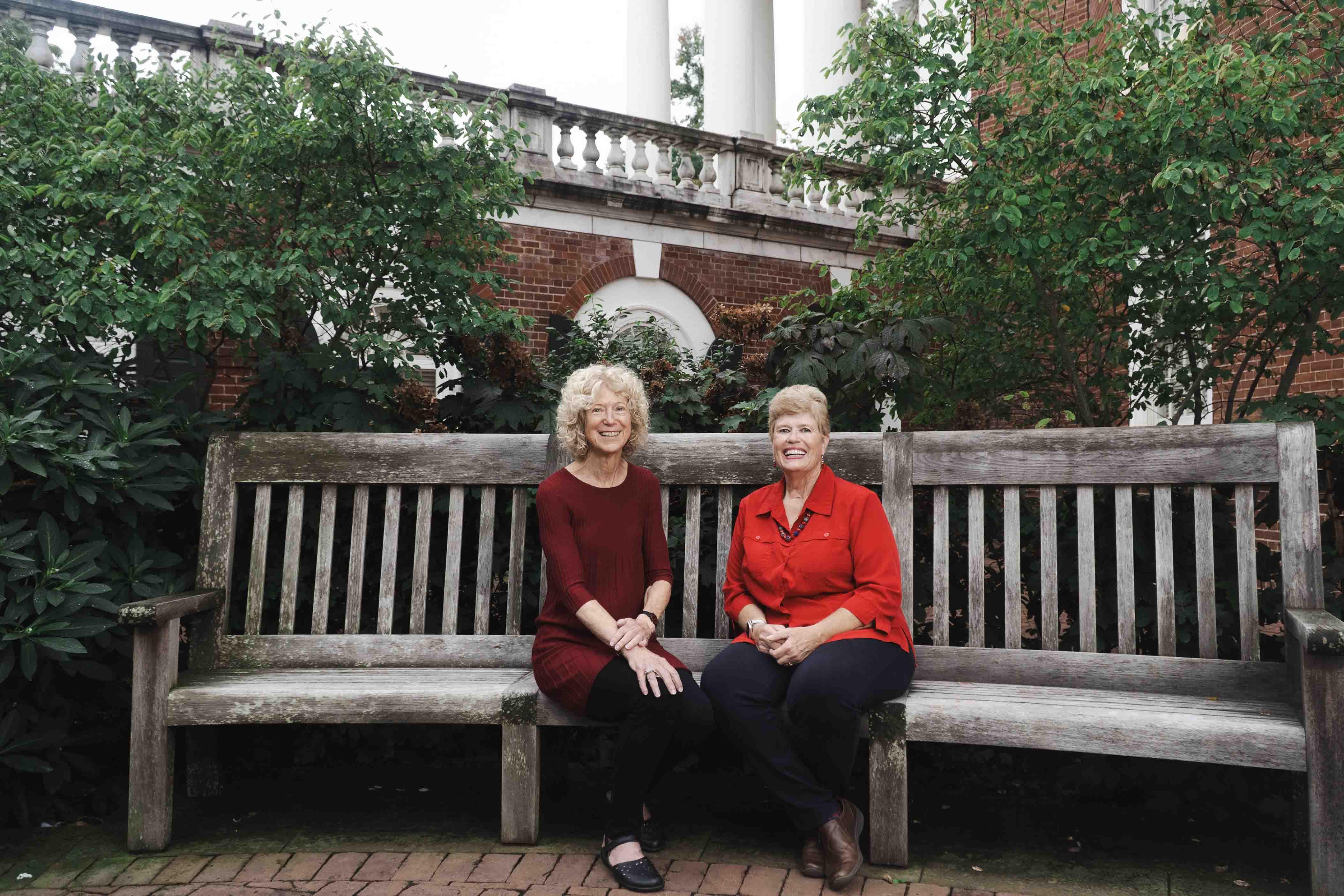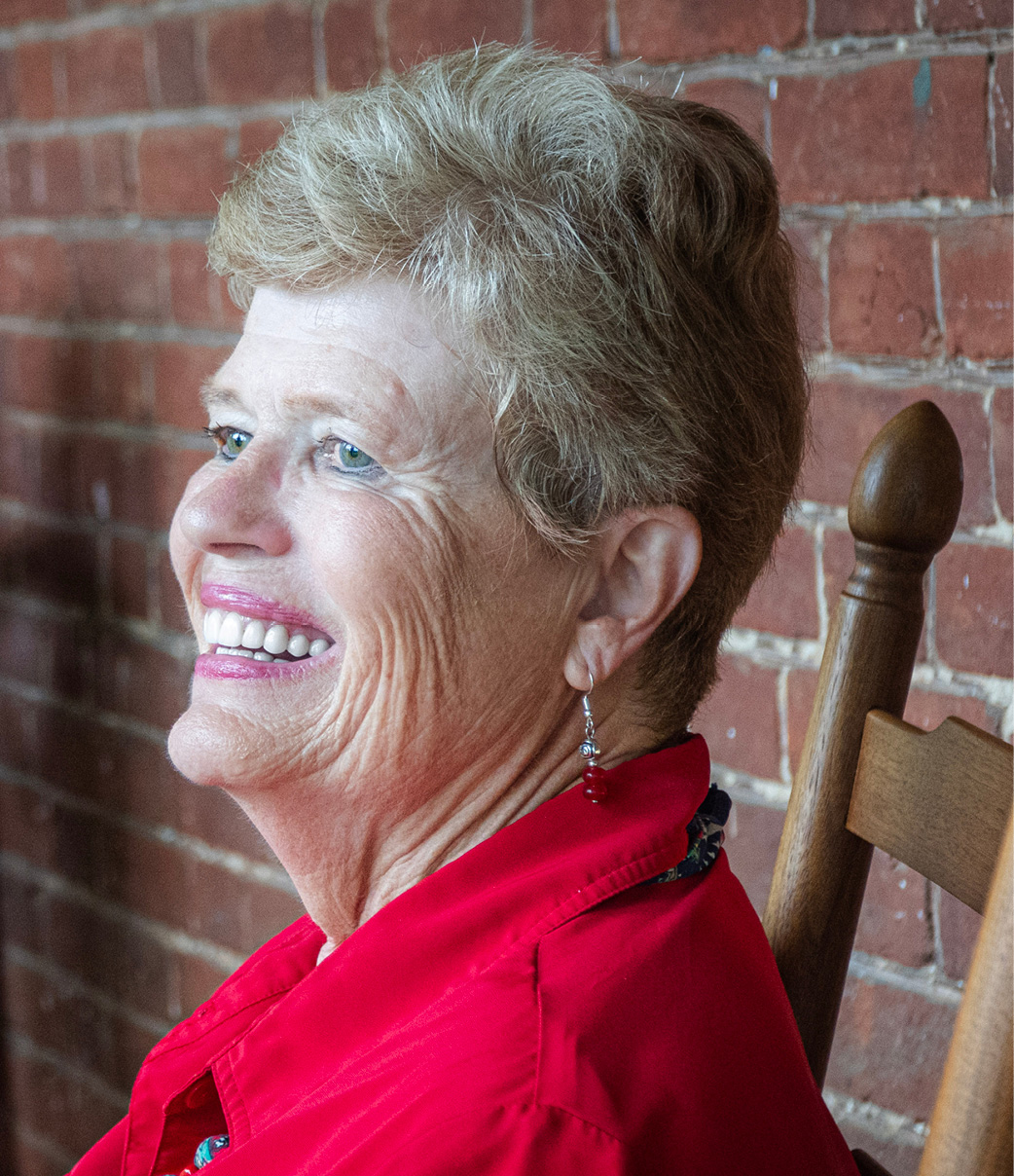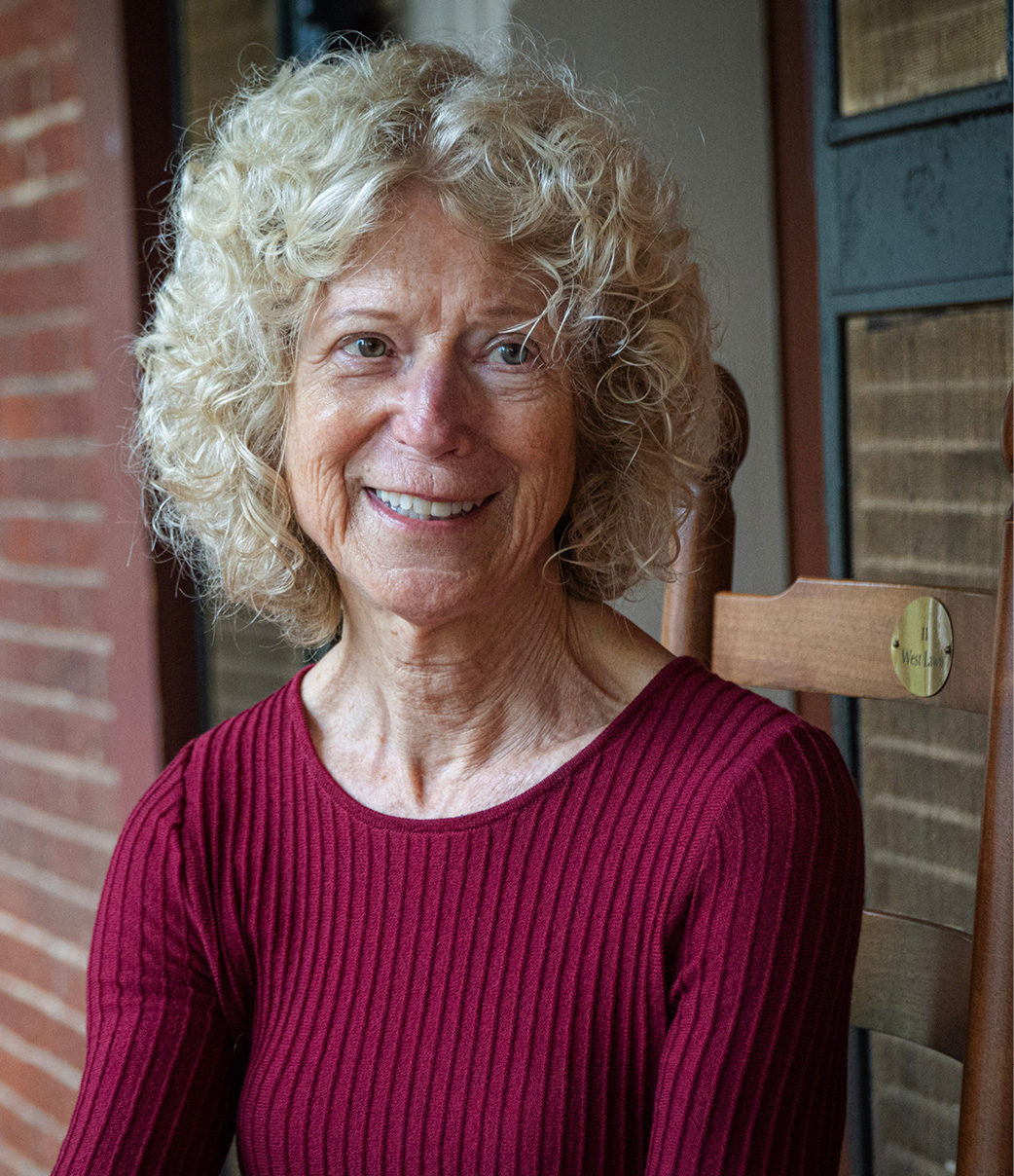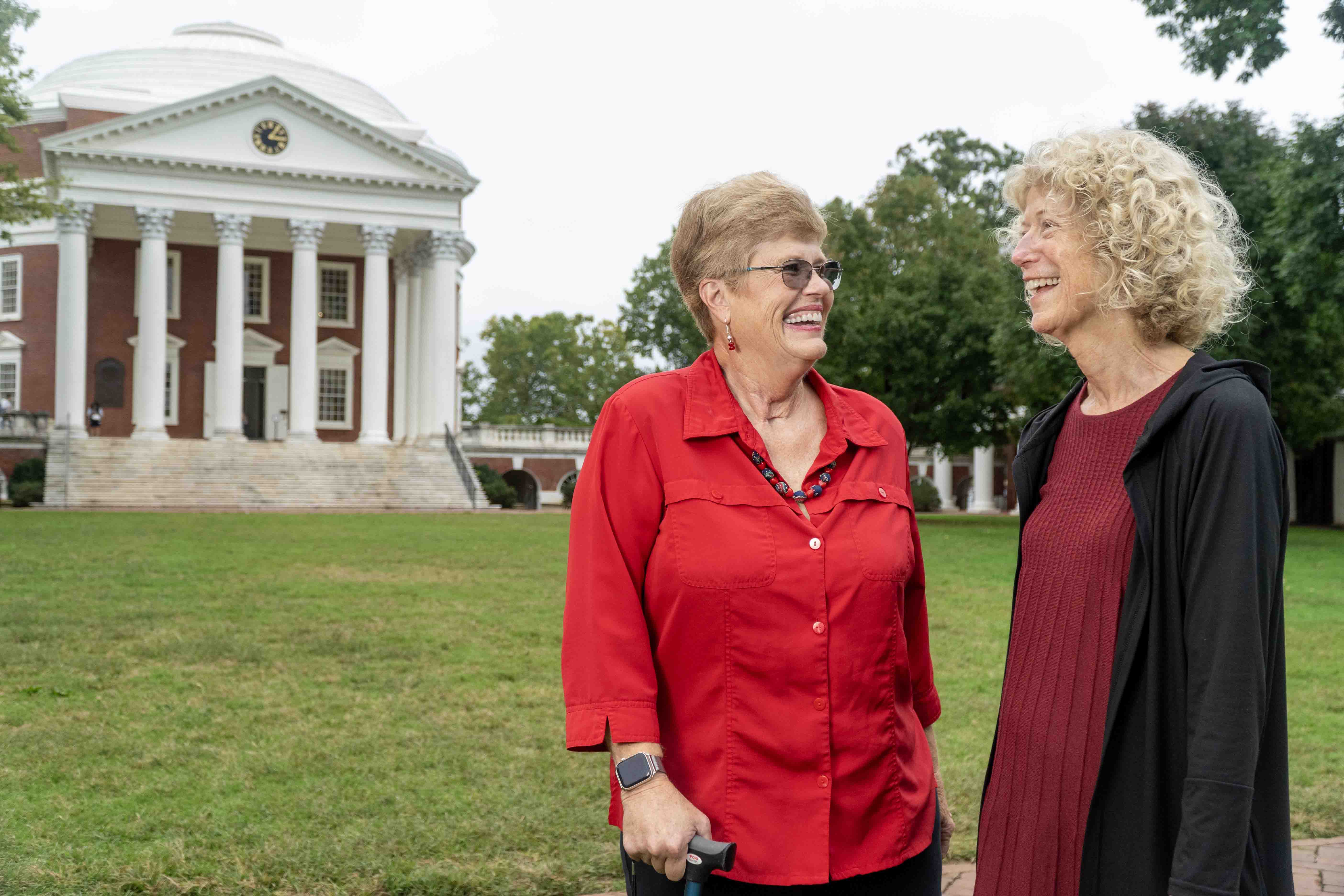

The Marti Snell Scholarship Fund
Living Her Values
Just a few years after the first women were admitted to the University, self-described go-getter Annette Martin Porter (Ed ’78, ’82) arrived to pursue her passion, developed at an early age, for working with individuals with special needs.
At UVA’s School of Education and Human Development, Porter found a mentor in pioneering faculty member Martha “Marti” Snell. Snell’s book, “Instruction of Students with Severe Disabilities,” influenced the field of special education and Porter’s teaching approach.
In the ensuing decades, Porter and Professor Emerita Snell exchanged sporadic notes and holiday cards. Then Porter’s life-altering car accident precipitated a reunion and an extraordinary gesture—a scholarship funded by Porter that honors their long-standing bond and exemplifies the selfless dedication of both educators to those they served.

Marti Snell and Annette Porter

“My heart was always close to those with special needs.” –Annette Porter

Martha “Marti” Snell. Snell’s book, “Instruction of Students with Severe Disabilities,” influenced the field of special education and Porter’s teaching approach.
A Heart for Special Needs
“I've always had a heart for children and babysat at a very young age,” Porter said. At 14, she began volunteering at a recreation program for children with special needs. “On the first day, I sat on the bleachers and just checked the situation out,” she said. “Then I decided that the children liked to play the same games that we do, and so I got up and just started playing.”
It soon became a paid summer job. Later Porter joined an organization that provided respite care. “I would bring two or three children to our family home to stay for the weekend so that their parents could get a break,” she said. “There were six children in my family, so my parents just thought, “What were a few more?”
With plans to become a physician’s assistant, Porter intended to study medicine at UVA. “But my heart was always close to those with special needs,” she said, so she switched her enrollment to the Education School. As a second-year student, Porter joined a weekend field trip that Snell was leading for third- and fourth years. The group traveled to a state-run institution in Lynchburg where the group stayed in a nursing dorm and slept on metal cots.
Snell described the situation as “mass confusion.” Her students worked in small groups of young adults with severe disabilities, teaching them simple tasks and the names of everyday objects. Although the group accomplished quite a bit, the experience took an emotional toll. “When we came home, we were shell-shocked, teary, and moved,” Snell said. “But it was an incredibly effective way to immerse students in the problems they would face as teachers.”
“It was pretty bad,” Porter added. “But it didn’t dissuade me from working in the field of special education.”
Blending Research and Reality
Snell’s approach resonated with Porter, and soon she became Porter’s advisor. “She broke skills down,” Porter said. “She practiced what she wrote in her book, taking a task and breaking it down into smaller steps. You teach one step and then add another step, and by the time you are done, the student has learned the whole task—like tying their shoes, or putting on an article of clothing.”
For Snell, research is the foundation of her teaching. “A lot of people say, ‘Oh, special ed, you have so much patience.’ That's the classic line,” she said. “I don't know about the patience, but the implication is that you're just taking care of them, as opposed to using proven methods to move them up along the scale of human development, hopefully into jobs and supervised living situations.”
Those proven methods were hallmarks of Snell’s courses. “Marti made sure that we knew a lot of things about working with students who had special needs, skills that we were going to need to do as teachers,” Porter said. Snell’s students learned important classroom skills, such as how to lift and position people with limited mobility.
Porter recalled a trip to a Charlottesville elementary school when she lifted a young student with cerebral palsy too enthusiastically. “The student let out a squeal because I’d just given her a roller coaster ride up,” Porter said. “Marti’s only suggestion was perhaps it would be better if you did it a little slower the next time.”

Putting Lessons into Practice
Porter took that lesson, and many others from Snell, with her into her career as a special education teacher in her native Northern Virginia. “I learned so much from the UVA program that benefited me tremendously when I took the skills back and applied them in Fairfax County,” she said.
Porter set up her classroom following Snell’s task analysis approach. “I had clipboards hanging everywhere to document students’ progress toward their goals,” she said. “Eventually, I became a mentor to other teachers, and they learned a data approach to documentation as well.”
Another Snell principle includes having students with disabilities spend as much of the school day as possible in a classroom with peers, typical students of the same age. “It helps both those with disabilities and the students who don’t have disabilities,” Snell said. “But it’s not easy to do well.”
Porter developed a preschool program that took advantage of such inclusion. In one instance, a young boy with Down syndrome repeatedly dumped his milk on the floor, despite the teachers’ best efforts. “It was the other typically developing students at the table who read him the riot act, and basically told him to knock it off,” Porter recalled. “And from that day on, he stopped.”
–Annette Porter
A Transformational Gift
Porter was in a serious car accident a few years after retiring. She sustained 27 broken bones, and after emerging from a stint on life support, she reconnected with Snell. She also began thinking of a way to honor her mentor.
Porter created the Marti Snell Scholarship Fund, which will aid selected students in the Education School’s Department of Curriculum & Instruction and Special Education. “I wanted to do something to say, ‘Thank you’ to Marti that would help the program that I benefited from so much,” she said. “UVA means the world to me and so does special education.”
When she learned of the scholarship, Snell said she was “stunned, humbled, and flattered all at once.” The gesture aligned with what she had come to know about Porter over the course of five decades. “Annette’s a pretty incredible person,” Snell said. “The scholarship fits with her focused intent, how she lives her values. She has had some tragedy in her life, but she keeps coming up to the surface.”
Ever the optimist, Porter continues to find joy in serving others, transforming her life-threatening experience into a life-changing opportunity for special education teachers following in her footsteps.
“I’m just so grateful to be alive,” she said. “To be able to do this is a gift to me and from me, and a way of saying, ‘Thank you.’”

